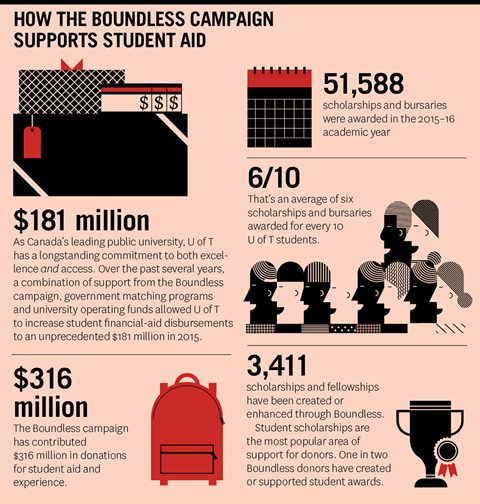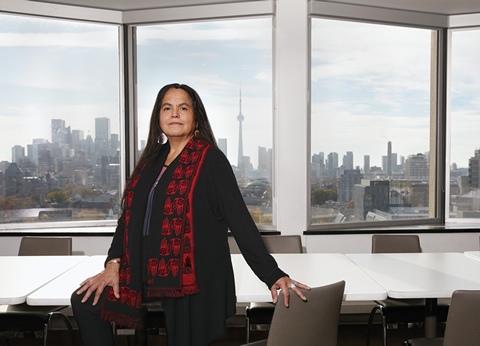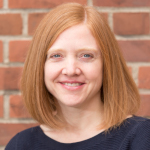In the early 1990s, Atik Bird was working at a domestic-violence shelter for Indigenous women and their children. She noticed some women kept returning to the shelter, trapped in the same cycle. “This really saddened me and it frustrated me because I didn’t know what to say to them,” says Bird (BA 2012 New College, MEd 2016). “I was just aware that there was more that they needed to know.”
Bird, who is a member of Montreal Lake Cree Nation, realized education was the key. After attending U of T’s Transitional Year Programme (a bridging program for adults who don’t formally qualify for university), she earned a BA in history and English – all while raising four children. She learned about colonial history – and about the powerful role Indigenous women had held as matriarchs and negotiators. She eventually went back to the shelter, helping empower women with her newfound knowledge. “It gave them some leverage to move on a little bit – which is what we all need. We need access to our history. The true history. Our own history from our own words.”
Bird returned to U of T in 2013 to earn a master of education from OISE. While there, she received a prestigious Indspire Award – a U of T scholarship for outstanding Indigenous students or for students whose parents did not receive post-secondary education. Funded through an anonymous donation to U of T, the scholarship is given in partnership with the agency Indspire. “When I received that award, I was amazed. I was in awe. It gave me the confidence to focus on my studies, and to trust my voice,” says Bird, who also won the President’s Award for Outstanding Native Student of the Year.
While working on her master’s degree, Bird took a course on residential schools in Canada and their devastating legacy. During the course, she read most of the Truth and Reconciliation report. It brought Bird to a greater understanding of her own family. Her parents had never talked about their many years in residential schools – or the painful, traumatic experiences they suffered through. It helped her re-evaluate her parents, understand their shortcomings and even heal a bit herself. She told her professor that she would have never read the report on her own. “It’s painful and it’s excruciating to read through, but I’m really glad that I did. It gave me more insight into my parents’ life and who they were.” She mentions her mother, an early-childhood educator, and her father, who helped develop the Native Alcohol and Drug Abuse Program, which now operates nationwide. “They went through some pretty bad things and it shaped who they were. Yet they were able to survive and also do great things.”
When Bird attended her convocation in November, there were many family members in her academic procession – her aunt Roz Young, a passionate advocate for education, to name but one. But missing was her youngest sister, Cynthia, who should have been graduating, too: Inspired by her older sister, Cynthia had been working toward her bachelor’s degree. The two even took a class together: Indigenous Worldviews. She was in her second year when she was diagnosed with cancer; she died in 2014. “My sister, when I graduated, I knew she was walking alongside me.”
Bird is not quite sure where her path will lead her now, but she is considering a PhD. And she is grateful that her schooling has given her more confidence, strengthened her own voice and helped her communicate more effectively with those around her. “My education enabled me to break down walls and barriers – even to be able to reach out to other people and make my life a little bigger – such as with other Indigenous students on campus. When we get together, we empower each other.”







